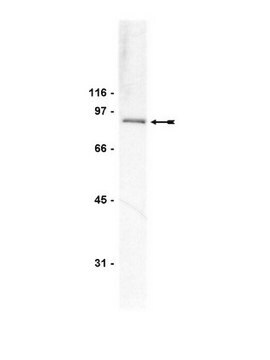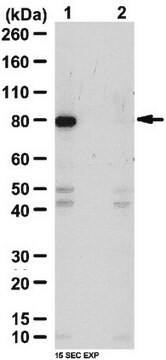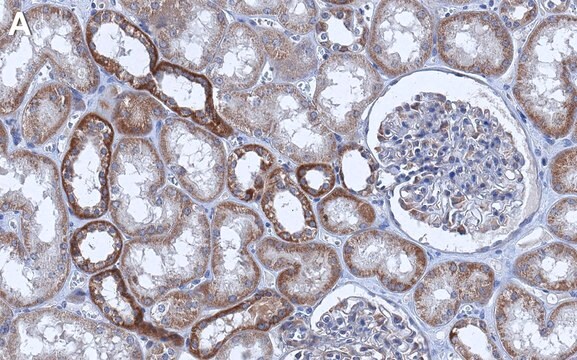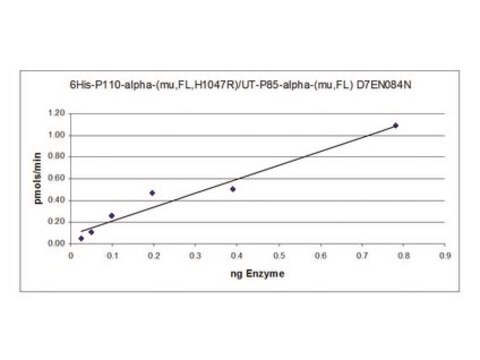09-481
Anti-PI3 Kinase Antibody, p110α
from rabbit, purified by affinity chromatography
Synonym(s):
PI3-kinase p110 subunit alpha, PtdIns-3-kinase p110, phosphatidylinositol 3-kinase, catalytic, 110-KD, alpha, phosphatidylinositol 3-kinase, catalytic, alpha polypeptide, phosphatidylinositol-4,5-bisphosphate 3-kinase catalytic subunit, alpha isoform, ph
About This Item
Recommended Products
biological source
rabbit
Quality Level
antibody form
affinity isolated antibody
antibody product type
primary antibodies
clone
polyclonal
purified by
affinity chromatography
species reactivity
human, rat
technique(s)
ELISA: suitable
immunohistochemistry: suitable
immunoprecipitation (IP): suitable
western blot: suitable
NCBI accession no.
UniProt accession no.
shipped in
wet ice
target post-translational modification
unmodified
Gene Information
human ... PIK3CA(5290)
rat ... Pik3Ca(170911)
General description
Specificity
Immunogen
Application
Signaling
PI3K, Akt, & mTOR Signaling
Quality
Western Blotting Analysis: 0.5 µg/mL (1:2,000) dilution of this antibody detected PI3K, p110α in Jurkat cell extract.
Target description
Linkage
Physical form
Preparation Note
Storage and Stability
Other Notes
Disclaimer
Not finding the right product?
Try our Product Selector Tool.
Storage Class Code
12 - Non Combustible Liquids
WGK
WGK 1
Flash Point(F)
Not applicable
Flash Point(C)
Not applicable
Regulatory Listings
Regulatory Listings are mainly provided for chemical products. Only limited information can be provided here for non-chemical products. No entry means none of the components are listed. It is the user’s obligation to ensure the safe and legal use of the product.
JAN Code
09-481:
Certificates of Analysis (COA)
Search for Certificates of Analysis (COA) by entering the products Lot/Batch Number. Lot and Batch Numbers can be found on a product’s label following the words ‘Lot’ or ‘Batch’.
Already Own This Product?
Find documentation for the products that you have recently purchased in the Document Library.
Our team of scientists has experience in all areas of research including Life Science, Material Science, Chemical Synthesis, Chromatography, Analytical and many others.
Contact Technical Service






